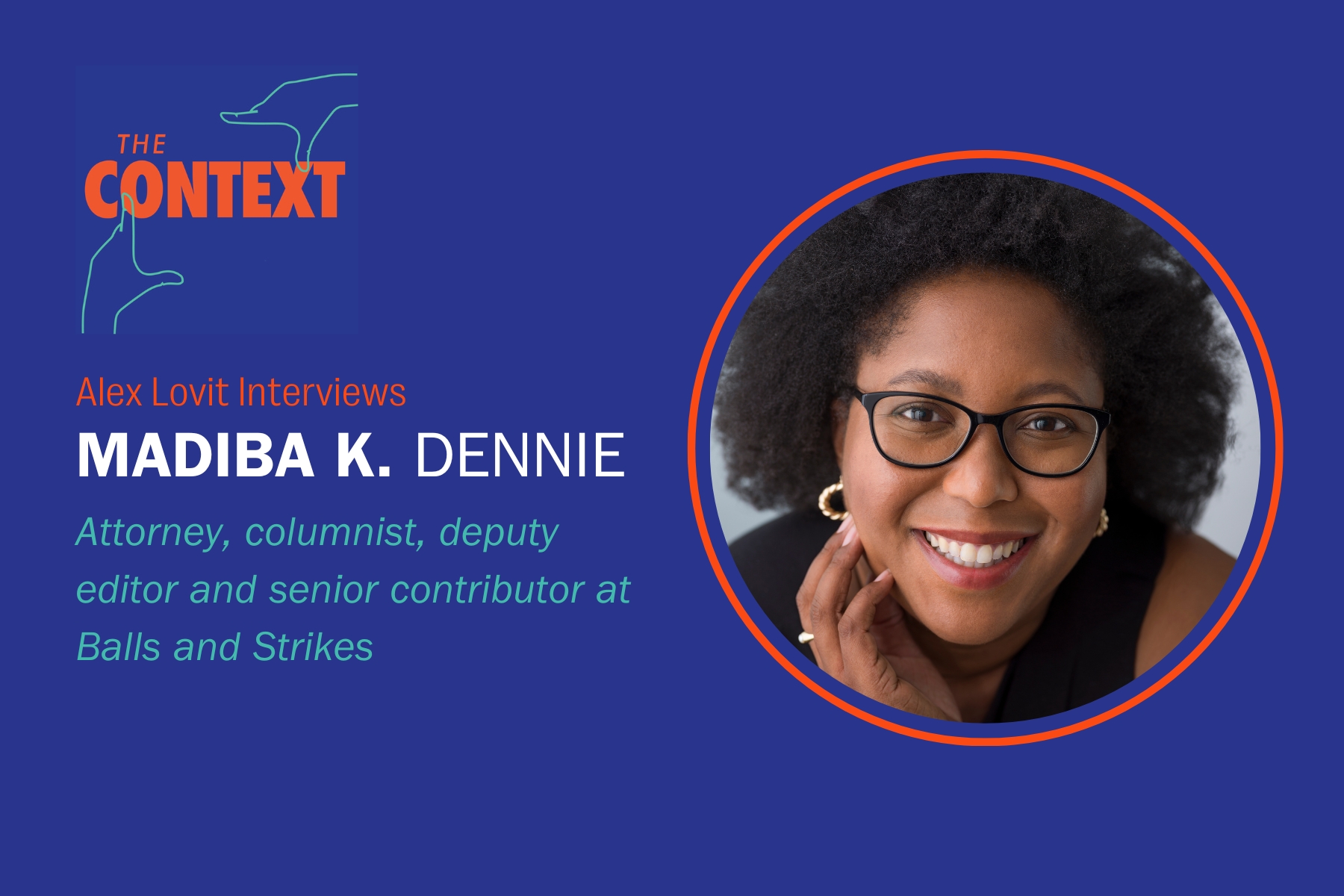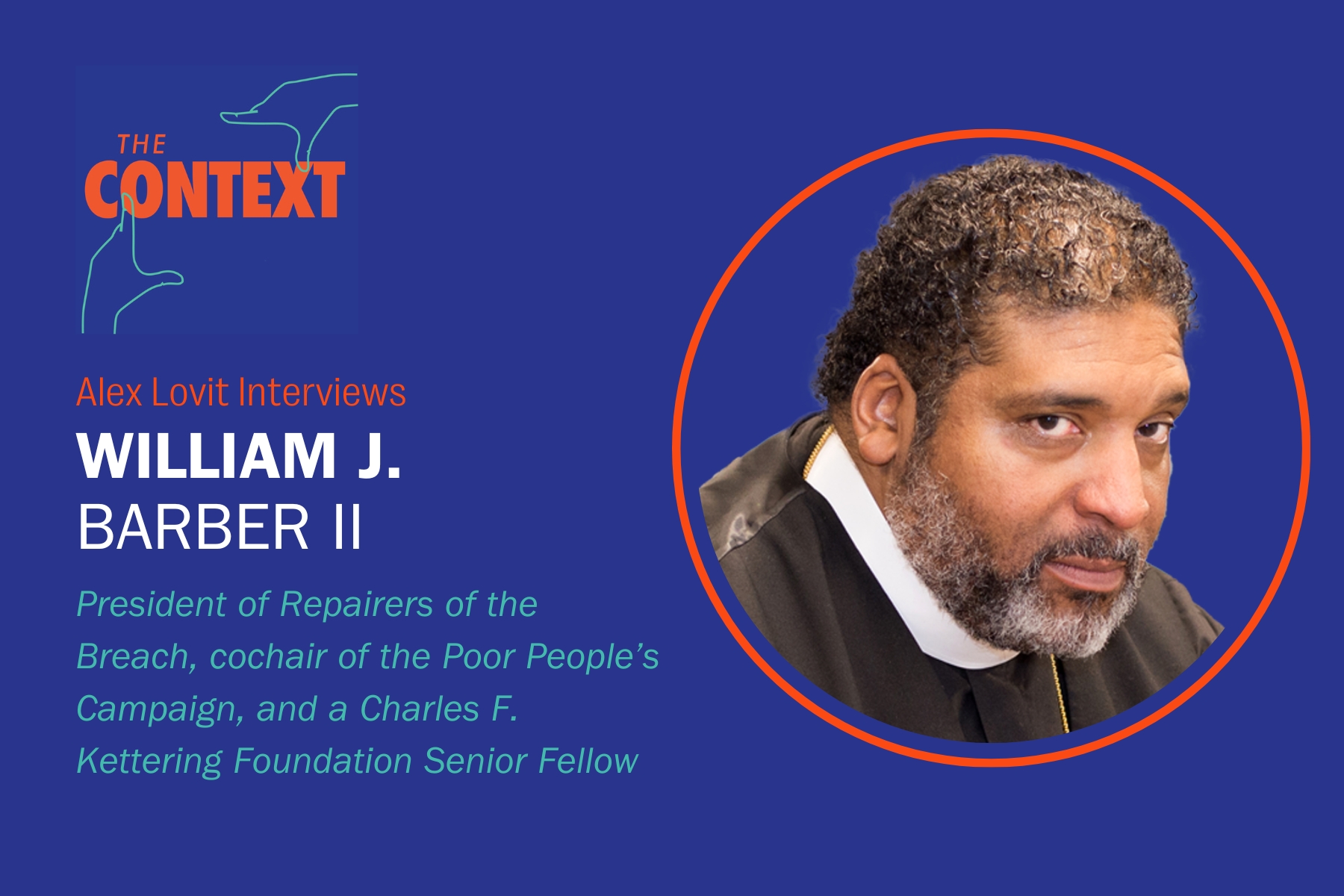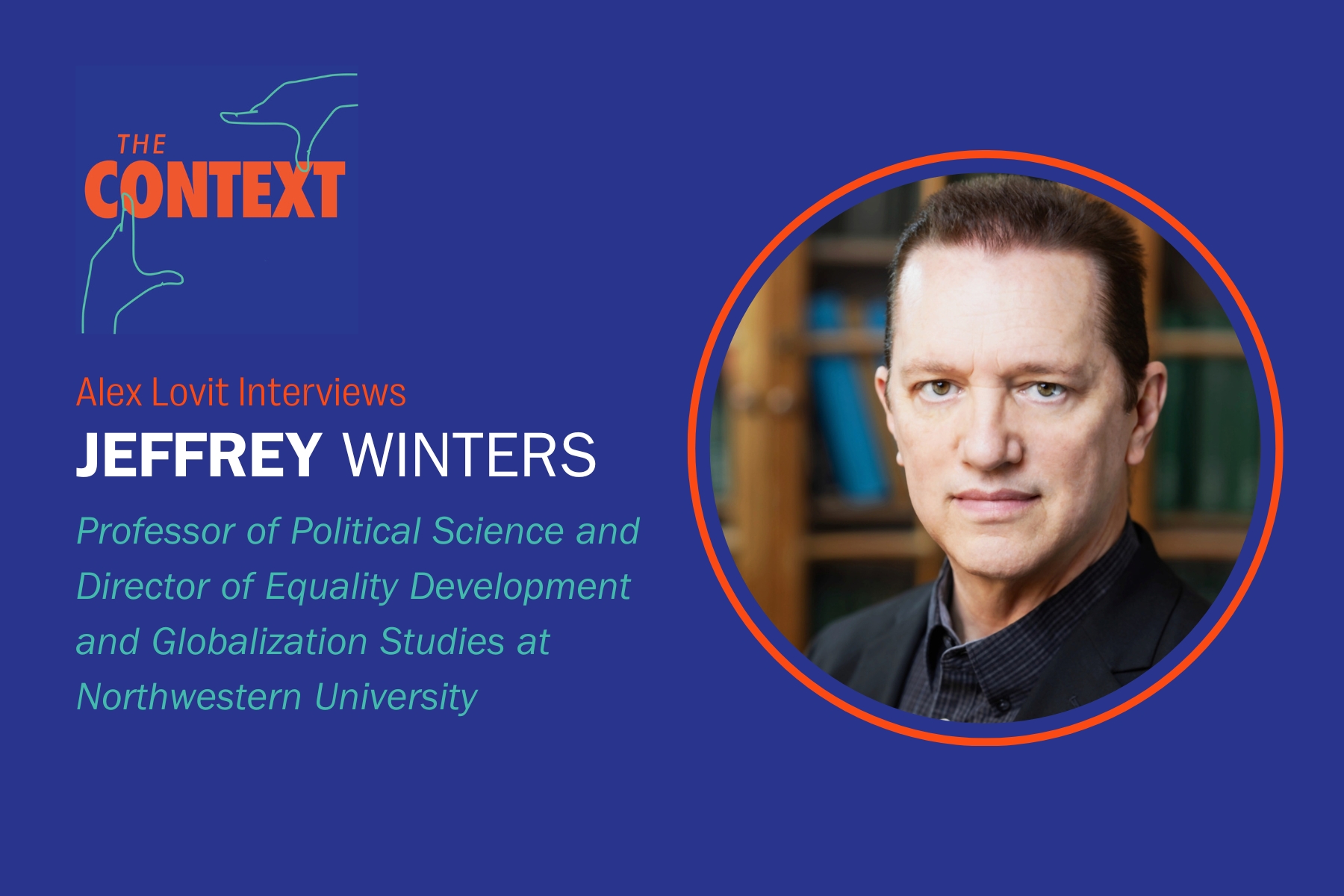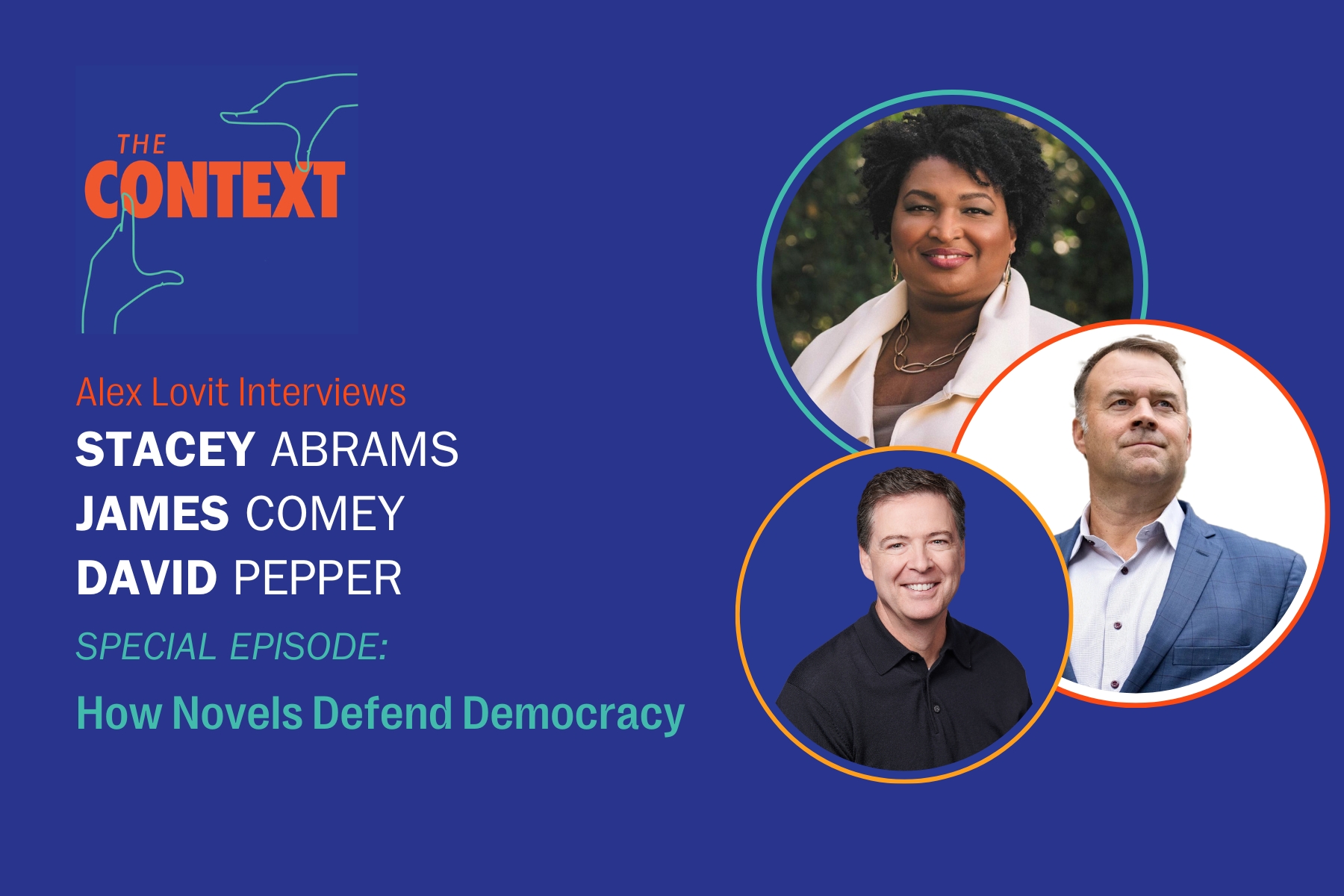The Election’s Over. Now What?
Donald Trump has been elected the 47th president of the United States. He will enter the White House with his party in control of both the House and Senate and with a Supreme Court mostly composed of Republican appointments. This election will have real impacts on American policy, which will not only change the lives of Americans, but also reverberate around the world, from Ukraine to Israel to Taiwan. Early signs of what to expect from the incoming Trump administration, and the new Republican-controlled federal government more generally, can be seen in who Trump appoints to high-level positions in the White House and who wins leadership in the Senate. And until the next election, public reaction to these and other actions will be the best way for politicians, the media, and citizens to influence government.
Chris Matthews began his career in politics, including serving as a speechwriter for President Jimmy Carter and as administrative assistant to Speaker of the House Thomas P. “Tip” O’Neill Jr. But for most of the last 40 years, Matthews has been a journalist. He has been a syndicated columnist for the San Francisco Examiner, the San Francisco Chronicle, and the Washington Monthly. Most famously, he was the news anchor of Hardball with Chris Matthews on MSNBC from 1994 until 2020. He’s written ten books and holds 34 honorary degrees. He’s also a senior fellow at the Kettering Foundation.
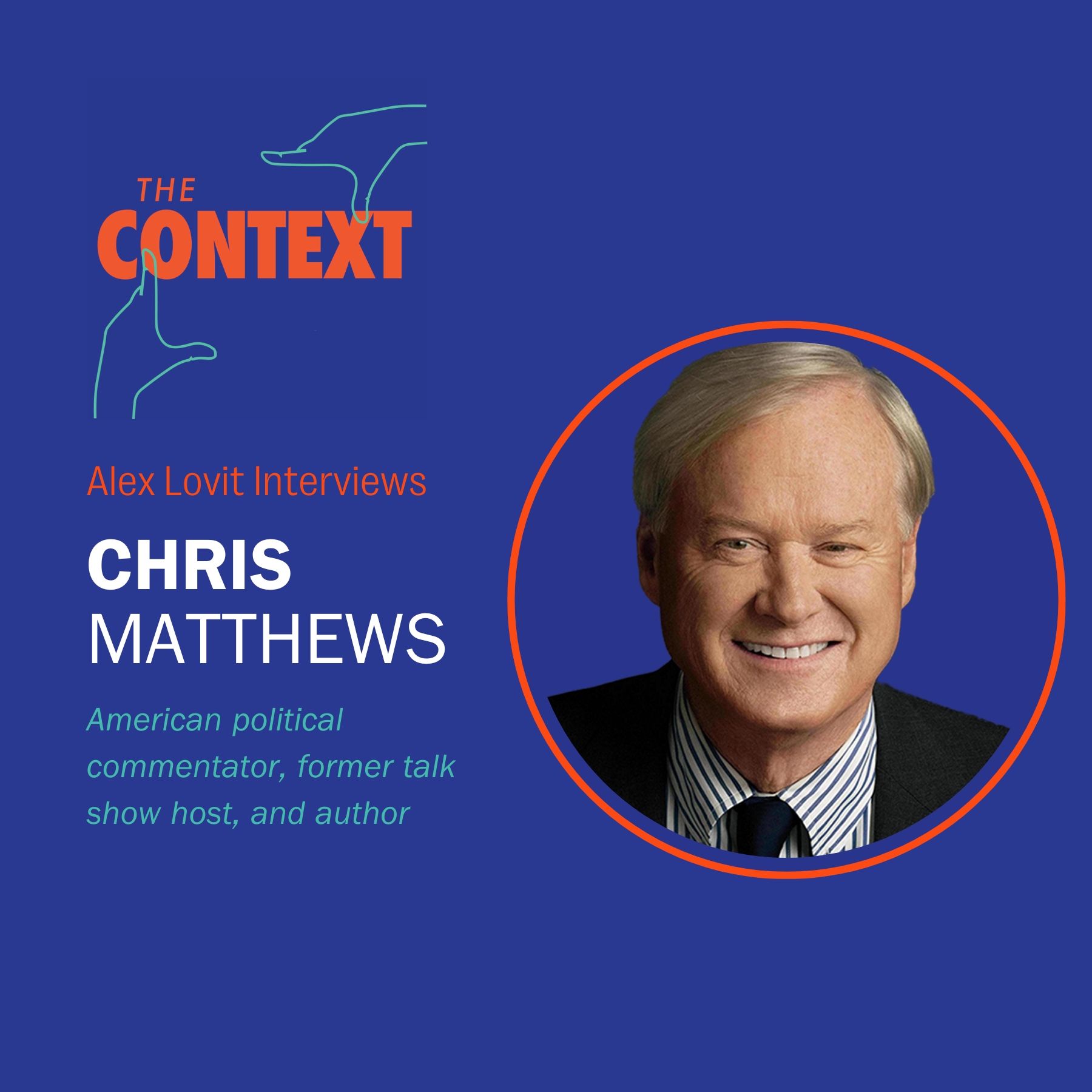
Share Episode
The Election’s Over. Now What?
Donald Trump has been elected the 47th president of the United States. He will enter the White House with his party in control of both the House and Senate and with a Supreme Court mostly composed of Republican appointments. This election will have real impacts on American policy, which will not only change the lives of Americans, but also reverberate around the world, from Ukraine to Israel to Taiwan. Early signs of what to expect from the incoming Trump administration, and the new Republican-controlled federal government more generally, can be seen in who Trump appoints to high-level positions in the White House and who wins leadership in the Senate. And until the next election, public reaction to these and other actions will be the best way for politicians, the media, and citizens to influence government.
Chris Matthews began his career in politics, including serving as a speechwriter for President Jimmy Carter and as administrative assistant to Speaker of the House Thomas P. “Tip” O’Neill Jr. But for most of the last 40 years, Matthews has been a journalist. He has been a syndicated columnist for the San Francisco Examiner, the San Francisco Chronicle, and the Washington Monthly. Most famously, he was the news anchor of Hardball with Chris Matthews on MSNBC from 1994 until 2020. He’s written ten books and holds 34 honorary degrees. He’s also a senior fellow at the Kettering Foundation.

Share Episode
The Election’s Over. Now What?
Listen & Subscribe
Donald Trump has been elected the 47th president of the United States. He will enter the White House with his party in control of both the House and Senate and with a Supreme Court mostly composed of Republican appointments. This election will have real impacts on American policy, which will not only change the lives of Americans, but also reverberate around the world, from Ukraine to Israel to Taiwan. Early signs of what to expect from the incoming Trump administration, and the new Republican-controlled federal government more generally, can be seen in who Trump appoints to high-level positions in the White House and who wins leadership in the Senate. And until the next election, public reaction to these and other actions will be the best way for politicians, the media, and citizens to influence government.
Chris Matthews began his career in politics, including serving as a speechwriter for President Jimmy Carter and as administrative assistant to Speaker of the House Thomas P. “Tip” O’Neill Jr. But for most of the last 40 years, Matthews has been a journalist. He has been a syndicated columnist for the San Francisco Examiner, the San Francisco Chronicle, and the Washington Monthly. Most famously, he was the news anchor of Hardball with Chris Matthews on MSNBC from 1994 until 2020. He’s written ten books and holds 34 honorary degrees. He’s also a senior fellow at the Kettering Foundation.
Alex Lovit: Welcome to The Context, a podcast about the past, present, and future of democracy from the Charles F. Kettering Foundation. I’m your host, Alex Lovit.
Well, Donald Trump has won the 2024 Presidential Election. He will enter office with his party in control of both chambers of the US Congress. And of course, Republican appointees already constitute a supermajority of the Supreme Court. In a lot of ways, this is democracy working as intended: Trump won the popular vote by a fairly slim margin, less than Biden’s margin of victory in the last election, but the majority of voters did prefer him so now he gets to exercise real power. And in future elections, the country can reevaluate its choices and decide once again who to entrust with control of government.
The results of this election will have real impacts on American policy, and those policies will have real impacts on people’s lives. But what does it tell us about who we are as a country, or rather what did this election result tell us that we didn’t already know?
We already knew we were a closely divided nation. We knew that Trump and Harris would each receive close to half of the votes. We also knew that many eligible voters would abstain from voting.
In the last few elections, our country has been divided roughly into thirds: Republican voters, Democratic voters, and nonvoters. Since we’re so closely divided, a small percentage of citizens shifting from one of those categories to another can swing an election.
Trump’s margin of victory in the popular vote this year was about three million votes. That sounds like a lot of people, and it is, but it’s only about 1.5 percent of eligible voters.
So what comes next? Well, my guest today, Chris Matthews, can help us think that through. Matthews is best known for his show Hardball, which aired on MSNBC from 1994 until 2020. He’s also been a syndicated columnist for The San Francisco Examiner, The San Francisco Chronicle, and The Washington Monthly.
But before his work in journalism, he had a career at the highest levels of politics, including serving as a speechwriter for President Jimmy Carter and as a top aide for Speaker of the House Tip O’Neill. He’s written 10 books and has received 34 honorary degrees, and he’s a Senior Fellow at the Kettering Foundation.
Chris Matthews is a veteran of Washington. He’s spent decades watching politicians maneuver to obtain and wield power. And as he says in this interview, the leadership race in the newly Republican Senate can give us hints of what to expect. That’s the race between Thune and Cornyn and others that Matthews mentions.
Thune won that race. He was elected Majority Leader by the Republican Senate Caucus on November 13th. He’s been critical of Trump at times in the past, so even though the White House and Senate will be controlled by the same party, that doesn’t mean they’ll always be in perfect alignment.
And then there’s the filibuster, which requires 60 votes in the Senate to end debate and bring legislation up for a vote. Since Democrats will be in the minority in both chambers of Congress, the filibuster will be one of the few tools they have to influence federal government, so whether Republicans abolish or weaken the filibuster will be a crucial question.
Another sign to watch out for that might indicate how Trump intends to govern is who he appoints to Cabinet seats and other high-level positions. Matthews mentions Mike Pompeo as an example of the sort of potential nomination which could indicate Trump’s willingness to seek consensus, at least with moderates in his own party. Since this recording, Trump has announced that he will not appoint Pompeo, and some of his other early picks, like Matt Gaetz for Attorney General, have been provocative, but that doesn’t mean Matthews is wrong about what to watch out for. It just means it’s already time to start watching.
One more quick correction here: Matthews says that Harris received 13 million fewer votes in 2024 than Biden did in 2020. That was where the vote count stood when this was recorded, but it now looks like that number will be closer to 10 million.
At the Kettering Foundation, we support free and fair elections and the peaceful transfer of power, but we also believe that citizens must be able to hold elected officials accountable, that governments must treat all citizens fairly and equitably, and that any authoritarian actions by government must be called out and countered. These principles may be at risk in the United States in the coming years, but that’s always been true in every democracy. Democracy will only endure and flourish if people and institutions act to defend and develop it.
As we transition from a divisive campaign to trying to find a path forward under our new leadership, Chris Matthews can help us understand what to expect and what to watch out for.
Chris Matthews, welcome to The Context.
Chris Matthews: Thank you.
Alex Lovit: As everyone already knows, Donald Trump has won the 2024 Presidential Election. Kamala Harris has conceded. She placed a call to Trump to congratulate him, she gave a concession speech.
You’ve had some experience in your life with living through various types of election results. You were a speechwriter for Jimmy Carter, and you’ve written about being on the plane with him in 1980 when he received the news that Ronald Reagan was about to defeat him in that election. Can you talk about what it’s like for a politician to concede a loss? What’s it like to go from the grueling pace of a campaign to accepting that it’s over?
Chris Matthews: Well, I think at awful times like that, people cry. Men cry. They go away for a few minutes to do it in private, but they do it. They’re shocked.
My first recollection was 1958. My dad and I were in the basement in a rec room watching Averell Harriman concede the New York Governorship. Now, he lost to Rockefeller, who went on to win four races, and he’s a wealthy man, enormously wealthy man. And yet my dad, who was a regular guy, felt for him, because he knew what it meant to lose an election, and how personal it is, how emotional, because you spend the last few weeks of the campaign going crazy, you go round the clock, everything in you is in that race, and you always hope you can win.
Jimmy Carter thought he’d win. I didn’t think it was likely, because my God, that was Sunday night when he announced he could not say when the hostages from Iran would come home. He said, “I wish I could tell you, but I can’t.” And I knew at that moment we were going to lose. I just felt it. The American people who had been hanging on for Carter to maybe make a deal on the end just gave up on him, and they said if we can’t deal with that third-world tyrant, how can we lead this country? And so it was a very personal rejection.
And I assume this time around, Kamala Harris thought she was going to win. I was in the bubble, the liberal bubble in Philadelphia at Rittenhouse Square where everybody was prochoice and everybody’s liberal and everybody’s hoping they’d win. And I’m sure she was surrounded with the same kind of people, and they all were exuberant in their optimism.
So I can understand how personal it is for a person to lose an election. And some don’t get over it—every time somebody drops a glass or something happens, and they look at the guy, you lose, didn’t you? And it comes back to their minds, you’re a loser, and it’s very tough. And even with all the money that people have when they go into these races, they lost.
And I think Kamala was wonderful in her concession at Howard. And by the way, the fact that she went to Howard is very powerful. Trump made fun of the fact that she turned Black or claimed to be Black. When you’re 17 years old and you decide what school to go to, and you decide to go to a historically Black college in Washington—which is a good school, a very good school—but when you decide to cross the country to go to Howard, you’re making a statement, that you’re Black. You’re going to be socially Black, politically Black. In every way, you’re going to present yourself as a woman of color, and she did that. This was the nonsense of Trump, that he didn’t admit that at least she admitted to being a minority in a country that’s ruled generally by its majority. And she said, I am what I am, and I’m going to be in this sorority with other women for my whole life. She’s in a very popular sorority. I think that was a real statement for her to concede the election at Howard, and to embrace Howard in the first place.
Alex Lovit: I do want to talk a little bit about what we learned from this election result, and what we learned that we didn’t already know on November 4th. We knew going into this election that it was going to be a closely divided race, that we have a closely divided country. We knew that both of the major candidates, each of the major candidates, would receive about 50 percent of the vote. That turned out to be at current count—votes are still being counted—but it looks like it’s going to be about 51 percent of the vote for Trump and about 48 percent of the vote for Harris. You know, so about 50 percent for each candidate.
Of course, that difference between 51 percent and 48 percent is a pretty crucial difference in democracy, and it’s going to make a lot of difference for what we see in government policy over the next four years, but what does this election result tell us about who we are as a country? Are we a different country because Trump turned out to be just over 50 percent rather than Harris?
Chris Matthews: Well, in some ways we’re the same country we were in the 18th century. It wasn’t until the 15th Amendment to the Constitution that Black people were technically under the Constitution permitted to vote. Of course, Jim Crow got in the way of that for 100 years in the south, but we decided in the Constitution, in our amending the Constitution, we decided that it was a proper thing for people who had been slaves to become citizens and voters.
But it wasn’t until 1920 that we had suffrage where we allowed women, white women, all women to vote. So there was a 50-year lag.
So you wonder beneath the surface, in the back of our heads, you go how much of that history is still happening, and how much is there still a delay on letting Black people be President, a person of color? Well, Barack Obama was elected, and he had a mixed background, and she had a mixed background of Jamaican and her mother was Indian. And you go, well, I guess we faced up to the racial or ethnic part of it.
On the gender part, I don’t know. You know, 74 million voted for Trump, well 81 million voted for Biden last time, and that was 13 million more than voted for Kamala. So what’s going on with the people who aren’t voting? Why did they vote for women for all these Senate seats in Wisconsin and Michigan, in Maryland, where women did well?
So I think states like Pennsylvania are a bit more old-time in their thinking—I’ve thought that a long time about Pennsylvania. The Governor up there, former Governor Bob Casey said “Pennsylvania is a John Wayne state, it is not a Jane Fonda state.” And you can think through that on a number of levels, ideologically and everywhere, and you’ll say yeah, that makes sense to me, it’s just more traditional. And they haven’t elected a woman Senator, they haven’t elected a Governor in that state, or many other states too, landlocked states. On the coasts, people have been more open to a woman leader.
So this election has a lot of colors to it. In a way, you could argue that a woman of color did really well—68 million votes, you could say that’s really well, but she lost. Some people changed their minds who had been anti-woman that voted for her this time.
Everybody—particularly me—I’m with the Kettering Foundation on this, and I totally believe in it, I want democracy. I want smooth transitions of authority. We know what America looks like and sounds like. We know we voted for Trump narrowly. We know there’s a problem perhaps with women in the highest office. We know all that. But we sort of all knew it, and we’re either going to resoundingly cheer the fact that people voted and we got a decision, and we have to figure out the leaders and how they’re going to use their new power, or we’re not going to do it. We’re just going to say, this is a terrible country, I should’ve never asked what they thought of women being President. I guess they weren’t ready for that.
Well, they’re ready for it right now. Almost half the people said it was a good idea to have her as President. I think we’re going to have to decide what he’s going to do next.
I remember thinking for a long time that Justice John Roberts, Chief Justice Roberts, would stop any attempt to get rid of Roe v. Wade, that we’d have stare decisis, that we’d go with the sitting of all. And he was circumvented by Judge Alito, who organized those three new members of the Court and did an end-run on Justice Roberts. And I thought that was terrible, and I was wrong. I thought Justice Roberts was the Chief Justice. He wasn’t, Alito was. And he and Clarence got together and took the young people and did what they wanted to do.
And it ended up being a disaster. It hurt women. It hurt the principle of three trimesters and having a social role, greater role at the end of a pregnancy. It made sense to most people. Not everybody was in love with it, but the law was pretty good, and it was a Court decision. And now we have nothing that guides us nationally. So they really blew it.
Alex Lovit: Let’s talk about what Trump is going to do. You’re talking about the Supreme Court there. Trump will probably get a couple more appointments to the Court.
Chris Matthews: Who do you think, who goes?
Alex Lovit: Who do I think? I would guess Thomas and Alito, but . . .
Chris Matthews: [Laughs].
Alex Lovit: You think not?
Chris Matthews: I’m just laughing because they love the power they have, the power, it’s awesome. It protects them against all kinds of ethics things. And my God, he can fly these crazy flags in New Jersey on the shore, and Clarence’s wife can do whatever she wants. And my God, taking trips wherever they want, freebies and all that stuff. Why would he give it up?
Alex Lovit: Well, perhaps not, perhaps Trump won’t get further appointments on the Court. He’s already had three, and has had quite an impact.
Chris Matthews: He does like 40 year olds, I mean, younger people on the Court. He loves that idea.
Alex Lovit: That’s what I’m trying to get at, that’s one impact on the Judiciary.
Chris Matthews: Isn’t it still 60 votes for the Supreme Court?
Alex Lovit: No, they got rid of the filibuster for Supreme Court nominees.
Chris Matthews: Well then, he’s got the votes now. He can do it. He can engineer a transition to a younger set of Justices.
Alex Lovit: Yeah, that’s one impact of this Presidency. I think for a lot of folks, including myself, it’s a little hard to understand what Trump’s agenda is. I mean, he said a lot of wild things on the campaign trail—he said he wants to deport 20 million people, he said he wants to replace the national income tax with tariffs entirely. These are pretty enormous proposals he’s making, and I assume a lot of those are not very firmly held. What do you think his agenda is?
Chris Matthews: Well, I think he, to replace the income tax with a very regressive sales tax in effect will not sell. He has to get that through reconciliation, the big measure where you can get all your taxes through, your changes in tax law, all your real spending decisions through, where you get to do that with a 50-50 vote. Now it looks like he’s going to get both Houses, so he’s going to get 50 percent in both plus, and he’ll have to do that in a big bill, and it either wins or loses. So he’s got to be careful what he puts up.
But I think he’ll do something on tariffs, maybe aimed at China. I think he’s going to cut off the money to Ukraine, and it really looks like that’s coming to a head. Zelensky’s going to have to deal with an American President who doesn’t have money coming, and that’s a real challenge. And I don’t think he’s going to change on this.
Eisenhower brought the Republican Party into NATA in ‘53 when he was elected. He beat Bob Taft. He made the Republican Party an international party. That was a big thing for the Republicans, and Trump’s trying to end that.
On the Bibi Netanyahu front, my God, he has a free hand, more than—it’s hard to believe you have a freer hand than with a Biden, but he has a real free hand. And I wonder whether Trump’s just going to give him the bunker-buster and let him go at it. I don’t know. We’ll see who the next Secretary of State is.
But on the North Korea front, God knows what happens. On the Taiwan front, who knows what’s thinking, what Xi is thinking about, whether he really wants to kill a lot of Taiwanese who are Chinese people to reunite.
So there are a lot of threats in the world, my God, and Trump, I don’t know if he appreciates the full danger that’s out there.
Alex Lovit: So you’re talking there about how this election is going to have impacts in the politics of various other countries, in Ukraine, in Isreal, in China. Let’s talk about the impact it’s going to have in the politics of our own country, where Trump is going to enter office, it looks like Republicans will definitely win the Senate, it looks like they’re also going to win the House of Representatives. So it’s going to be kind of internal politics within the Republican Party that determine legislation in the near future.
Are there factions within the Republican Party, are there people that have interests that are different from Trump’s, or do you think Trump is, it’s his party now and they’re going to follow along with whatever he wants to do?
Chris Matthews: You know, I think I have to give a nuanced answer. I think John Thune from South Dakota is a good man. I think he’s not a Trumpy. I think he’s a reasonable institutionalist. I think the Republican leadership still believes in the Senate. They don’t just believe in Trump, they believe in the Senate. They have constituencies in their hearts that are real—like they’re not going to get rid of the filibuster I don’t think. They know that’s what separates the US Senate from the House of Representatives.
The House of Representatives follows the public whim. The Senate is the saucer in the teacup that lets things settle down before they act. And they do like that 60 vote requirement in most, for legislation. So I think he’ll fight for that, John Thune will.
I think there’s a big block of Republicans who I like, who I’ve come to like in the last months, who are noblemen and noblewomen. I think Mitt Romney, Christy Todd Whitman, John Kasich, Liz Cheney certainly, I do think those people—especially Mitt Romney and George W. Bush have kept their membership in the Republican Party and did not endorse Kamala Harris because they want to be, they wanted—let’s get the tense right—they wanted to be around to clean up the mess. And they were hoping that Trump would lose, clearly. And those are the good people.
I think there was a faction of the Republican Party that gave up. John Kasich is gone. The people that CNN and especially MSNBC put on television every night are never going to be heard from again. Claire McCaskill and all those people are good people, but they’re not really part of the Republican Party anymore. The party’s a MAGA party now. And they may be on the fringe, but they’re really not potential power brokers in the party.
The ones to watch are Thune and Cornyn from Texas, the ones who are competing for leadership in that majority-Republican caucus, and they’re the ones that matter. And I think they have to pay attention to who those people are, because they’ve got be—one break against Trump if he goes crazy, they will say no, they’re going to fight him, I think. We’ll see.
Alex Lovit: So you’re putting some hope in the Senate as possibly the place where some of Trump’s . . .
Chris Matthews: Not in Michael, I have no faith in Michael Johnson.
Alex Lovit: Speaker of the House Mike Johnson.
Chris Matthews: I think he’s charming enough to deal with people, he knows how to talk to people. He’s not Newt Gingrich, he’s not gross. But I think he’s a paper tiger. I think he goes with Trump.
Alex Lovit: It strikes me, and I wonder what you think about this, that there’s going to be some choices coming up with the new Senate. So there will be a race for the majority leader, and you’ve mentioned a couple candidates for that position who are a little more moderate in their positions, possibly would be more of a brake on Trump’s excesses.
Chris Matthews: I think.
Alex Lovit: There are also Trumpier candidates applying for the job. But then also the filibuster and whether they get rid of it.
Chris Matthews: I don’t know, I don’t think they’re going to do it. It’s in the blood of a Senator. It means that you can talk whenever you want as long as you want. You can do a Jimmy Stewart in Mr. Smith Goes to Washington, and you can do it all night long, and you can make your point. It’s what separates it from the House, which has a five-minute rule, okay? That’s the difference between speaking for a lifetime and having a five-minute rule or whatever.
Even on the committees, like Adam Schiff, smart people—you watch them speaking, the people that are blah-blah-blahing the whole time, but then they get up and they’ve all got five minutes, or Jamie Raskin. They can only talk for five minutes. It’s really minimal. Your voice isn’t really heard that much as it can be in the Senate. I think they value it, and I hope they do value it.
I think Mitch McConnell, and I have very mixed views about him, I think he believes in it, whatever influence he has left at this leadership meeting in the fall.
Alex Lovit: Okay, so we’ll get some indications from the Senate about how the Republican Party will govern. We can keep our eye on that race for Majority Leader, and whether they abolish or weaken the filibuster. What about the White House? Is there anything we can tell about how Trump plans to govern from who he appoints to his Cabinet or other high-level positions?
Chris Matthews: I think that to look at his Wiles, the woman he picked for Chief of Staff, looks like a meritocracy. She did a good job of running his campaign. She wasn’t out there like some of the real bad people singing his praises all the time. She was just doing her job of running a campaign. The fact that he publicly saluted her by naming her his Chief of Staff is very important. It’s what traditional American politics is based upon: Reagan’s picking Jimmy Baker as his Chief of Staff, looking at who’s good as a standard of who do you want to serve well. So I think it’s really good to pick her.
If he picks Pompeo as his Secretary of Defense or State, that would be a sign that he was settling down a little bit, I think maybe signs that he’s deliberating—that’d be good to see. Watch for the good guys and the bad guys and hope we get a good guy.
I don’t know. It’s going to be a wild and wooly time, and hopefully we can [each of us] calm when he’s out and calm when he’s in.
Alex Lovit: So Trump says things that seems like violations but also has the capacity to modulate, to govern in more normal ways at times. But he also has the capacity to, I think you and I both agree that January 6th was over the line, that Trump does have the capacity to overstep the bounds of democracy and act in fundamentally undemocratic ways. How should we draw that line? What should we be looking for, and how should we be responding differently to violations of democracy?
Chris Matthews: The big question, Trump probably figures he’ll live another 15 years, maybe. I mean, just speak practically, he’s almost 80. He might make it to 90—the way he eats, the way he lives, the way he doesn’t exercise. I mean, how long’s he going to really make it? And what is he thinking about his legacy, because he will have a legacy in four years, you know, begin to have a legacy. Does he want a legacy where people say you know what, I was wrong about the clown, you know, he’s not really a clown, he’s smarter than I thought he was, he ended up having a better second term than I thought? Does he want that verdict? Does he in any way treasure the fact that moderate people who voted against him would say, you know, he’s a 70 percenter, not a 50 percenter. He’s going to go down in history as a successful President, like a lot of ways Harry Truman became that, and Eisenhower too, and Reagan—people that you didn’t thin the best of in the beginning, you go damn it, it turned out alright, belongs in our history.
Or does he want to be the clown he was in the first time, where he couldn’t deal with COVID, couldn’t deal with a crisis? That’s a great question. Or does he want to be the man who clowns it out and ends up in four years still going to rallies, still turning on the people with the stuff, the old white supremacy stuff, the old bring us back, take us back, let’s go back, nostalgia, and appeal to that?
You know, I think they’re great questions. If he just wants the crowds, if he just wants the turnout at his rallies, we’re in trouble, because they’ll be there. And the poor people will be there, ironically.
So he has to do all right. He’s got to get along with Jerome Powell, he’s got to go along with the Fed, he’s got to find a way to keep the market up—he always wants the market high—and he has to keep up optimism about incomes and at the same time restrain inflation. Maybe inflation has been licked, I don’t know. He’s got to keep us out of wars. He does not want a war.
One thing I know about Trump, and I like him for this: he doesn’t want wars, especially endless wars like Iraq and Afghanistan. He doesn’t want to drag us into these wars that are impossible to drag yourself out of. He doesn’t want that. He doesn’t want to go to war with Iran. Israel can do it, he doesn’t want to do it. He really doesn’t want to do that, because he knows once you get into war, it’s killing people and our people getting killed, and mangled people on television trying to raise money for people—who wants that? Except the hawks, who do like it. I don’t think he’s a hawk.
So he needs to have peace in the world, prosperity in the world, and some kind of dealing with the border, and keep his enemies at a distance.
Alex Lovit: So you’re talking there about those kind of two paths that Trump might go down.
Chris Matthews: Well, which one do you think he’s going to go on?
Alex Lovit: Well, my question is, is there anything we can do to nudge him one way or the other?
Chris Matthews: Well, I think you can reward him for—I mean, the press is not monolithic. I think he sees that we cheered, the press has been cheering Wiles’ appointment as Chief of Staff recently. If he makes other appointments like that that are seen as moderate and respectful, people will cheer it. And he’ll hear that, and he’ll go well, maybe I can build on this. I like to think that.
I think if he picks wackos though—I’ll be really blunt now—if he picks Bobby Kennedy Jr. for anything, if he gives him anything like a Chair in the Cabinet room, it’s frightening. The fact that Bobby Kennedy Jr. would be sitting in the Cabinet will pollute the whole room. He’s an awful public figure. He used to be smart as people come. On the environment and things like that, he was really good. He was really good as a person. Something broke in that guy, and what he does now is—I mean, the fact, just think about, we’re not going to get Polio shots, we’re not going to get measles, mumps, we’re not going to get our shots anymore? What, we’re going to get rid of fluoride for our teeth? What? How crazy is that.
And that’s going to be front-page top of the fold news if it happens. You start talking about Polio vaccines, or any of the other vaccines, this country will erupt. So he shouldn’t be in the Cabinet room. Give him something to do, but I wouldn’t let him in the room, because he can pollute everybody there.
Alex Lovit: You know, this is an election result that I think you found disappointing, at least at the Presidential level. You’ve lived through disappointing elections in the past. How do you maintain your faith in democracy and your faith in this country after you see a majority of your fellow citizens vote for someone that you oppose?
Chris Matthews: I think when people talk about national interests and protecting their citizenship, they have a very legitimate right to focus on that issue, that your citizenship should not be inflated or dissolved by having people come in the country and living here who never become citizens, who have no way of becoming a citizen. And I think that’s reasonable, and I think these are good values. I think they should all be looked at, all the values, as being pretty much right to an extent. And not the right where grabbing people who’ve been here 20 years and throwing them out, and they’re grandparents, basically. I think you have an extent of being right.
So I think it’s about degree, and recognition of people’s good arguments, but they good too far. And they have to step back and say yeah, I think I’m three-quarters right, but let’s stop right there.
Alex Lovit: Well, I think politics is at its best a way of finding the compromise between extremes. You know, unfortunately it often happens through expressing those extremes. But thank you, Chris Matthews, for joining me here on The Context.
Chris Matthews: Alex, it’s been an honor to be with you. You know, you’re reasonable. I mean, you listen to me. I mean, that’s—you let me talk. Thank you.
Alex Lovit: The Context is a production of the Charles F. Kettering Foundation. Listen to past episodes of this show or sign up for our newsletter at Kettering.org.
I’m Alex Lovit, a Senior Program Officer and Historian with the Foundation. Kettering’s Director of Communications is Melinda Gilmore. George Drake Jr. produced this episode.
If you like the show, please do a favor and tell a friend, or give us a rating or a review wherever you get your podcasts. And if you don’t like the show, well, send us an email at TheContext@Kettering.org, and tell us what we can do better. We’ll be back in this feed in two weeks with another conversation about democracy.
The views expressed during this program are critical to us having a productive dialogue, but they do not reflect the views or opinions of the Kettering Foundation. The Foundation’s broadcast and related promotional activities should not be construed as an endorsement of its content. The Foundation hereby disclaims liability to any party for direct, indirect, implied, punitive, special, incidental or other consequential damages that may arise in connection with this broadcast, which is provided as-is and without warranties.
Transcripts are created on a rush deadline by a Kettering Foundation contractor and may contain small errors. The authoritative record is the audio recording.
More Episodes
- Published On: March 11, 2025
Donald Trump’s 2024 campaign promised “the largest deportation operation in American history.” Will he be able to achieve this goal? What would...
- Published On: February 25, 2025
The Constitution is under attack—and not just by Trump and the executive branch. For a long time, the conservative justices on the...
- Published On: February 11, 2025
The United States is the wealthiest nation in the world, but millions of its citizens live in poverty. What prevents poor, low-wage,...
- Published On: January 28, 2025
Why do so many Americans think tax breaks for the uber-wealthy will help the average person? According to Jeffrey Winters, the answer...
- Published On: January 14, 2025
The separation of church and state is a foundational principle of American democracy, but that doesn’t mean that religion hasn’t played an...

